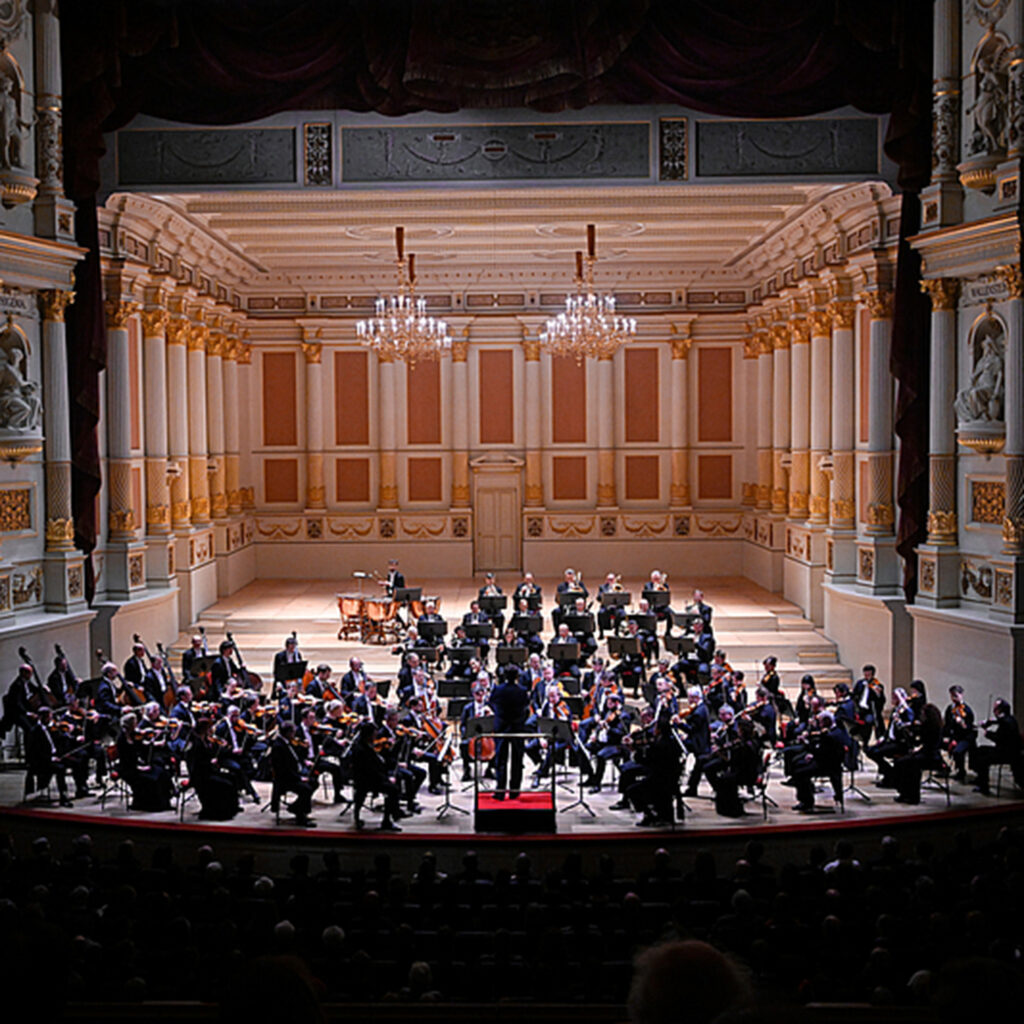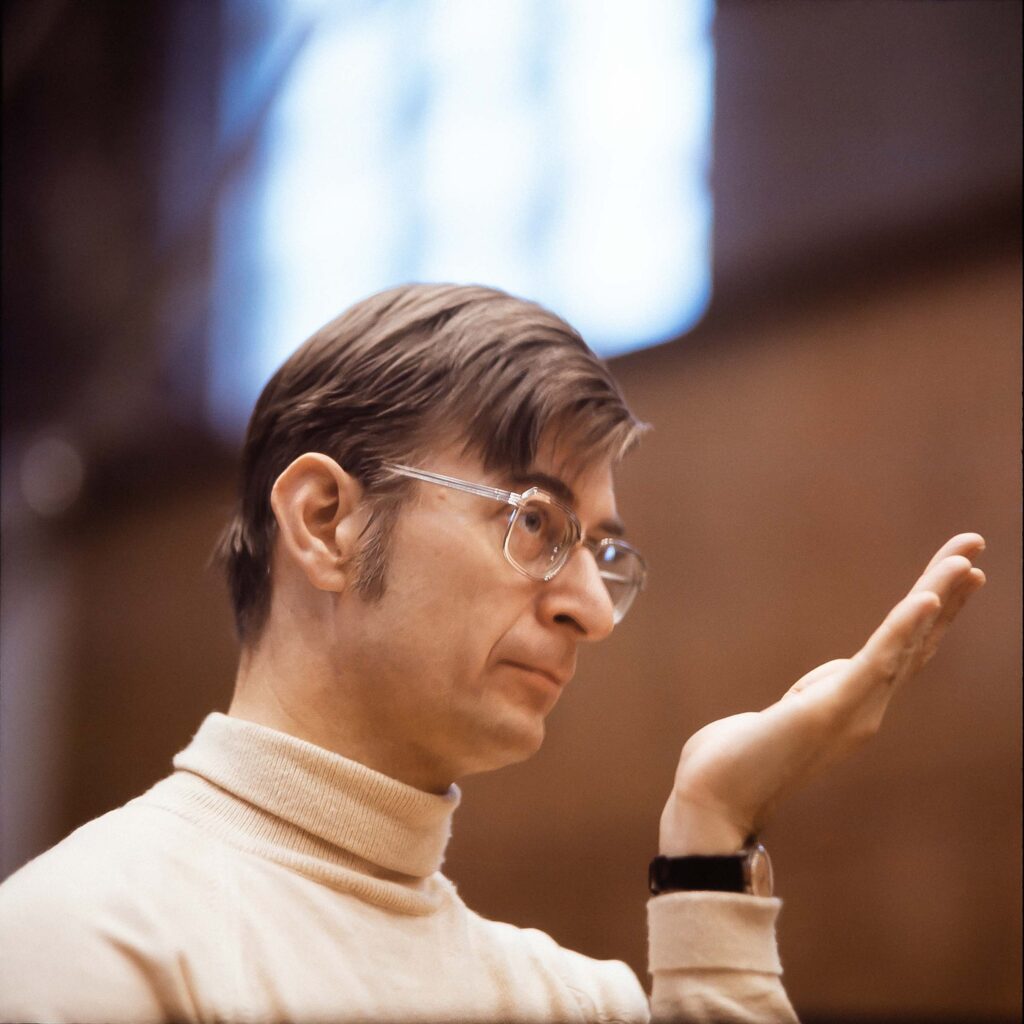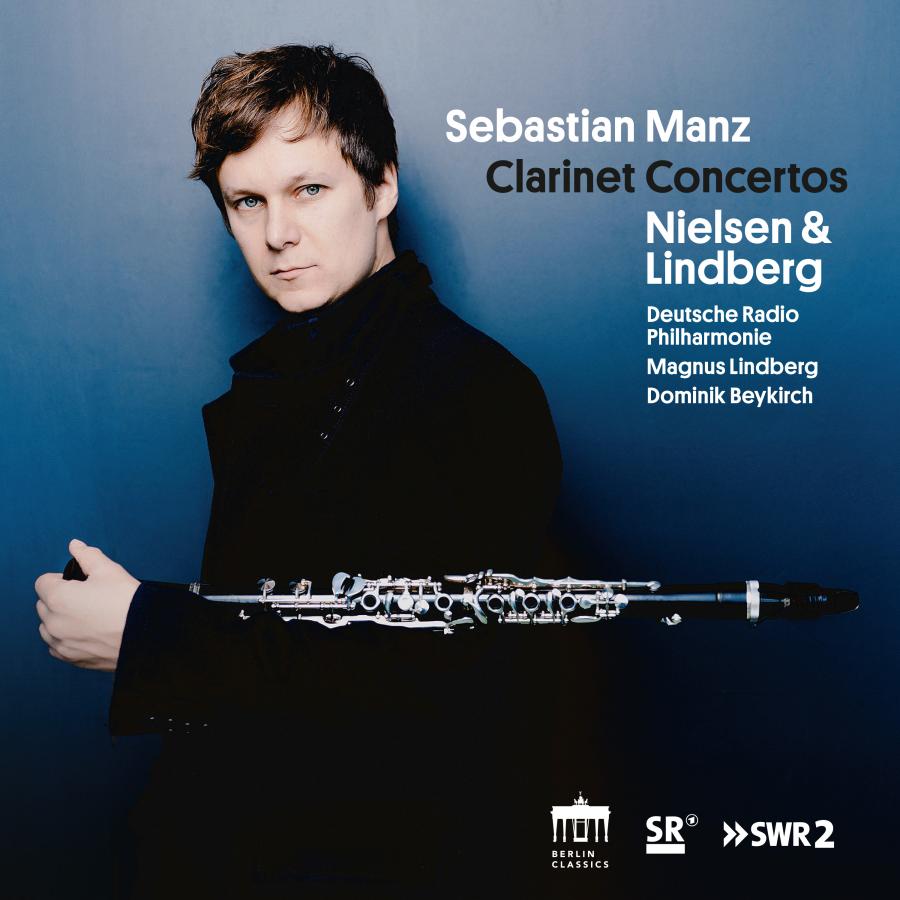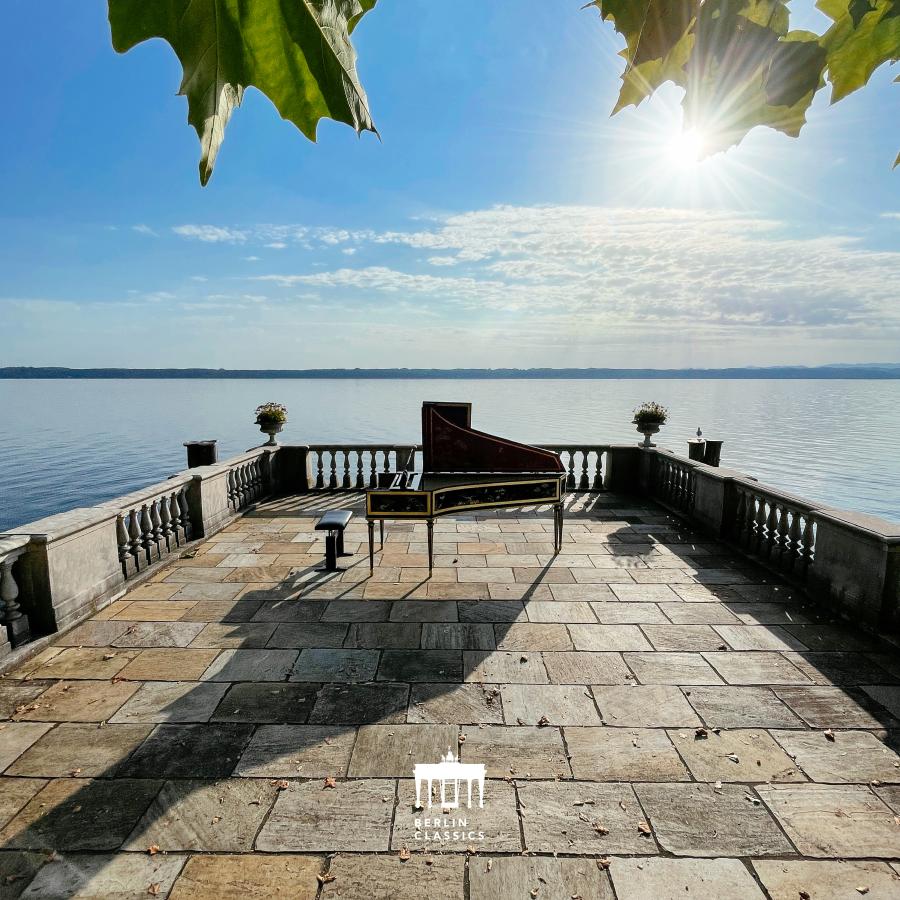The history of the musical partnership between Herbert Blomstedt and the Staatskapelle Dresden began over 50 years ago: in 1969 the conductor, who was born in the USA and grew up in Sweden, stood for the first time at the podium of the over 450-year-old Sächsische Staatskapelle Dresden. To date, over 500 concerts have been added. It shows Blomstedt’s great devotion and enthusiasm that he went behind the Iron Curtain in the middle of the Cold War and became chief conductor of the orchestra from 1975-1980. In addition to a Schubert cycle, he also recorded all the Beethoven symphonies for the GDR classical label ETERNA. As much as Blomstedt set great value upon the audio transparence of the orchestral fabric, he filled each of the nine Beethoven symphonies with life. After all, as he once described the main feature of these works, it is the music that wants to appeal to the listener. Hence, we are touched and swept along, flattered and captivated by Blomstedt and the Staatskapelle, with arcs of suspense and mood reaching from sublime to jagged, from grippingly impulsive to exquisitely beautiful and longingly cantabile. On the one hand, the musicians completely refrain from heavy romantic expressiveness in the process. On the other hand, the recordings lack that detached analytical “rationality” often found in radical readings and among the advocates of historical performance practice. For all his accuracy, Blomstedt’s Beethoven always possesses human traits, ranging from sensitive to friendly. A perspective that is not at all surprising for such a conductor. Although he has been ranking among the world’s first-class conductors since those Dresden years, he has preserved a warm-heartedness in his dealings with the orchestra setting him radically apart from many other colleagues behaving like despots. “To have governance over a hundred people, that was never my goal,” was a phrase summing up his musical self-conception early on. The tapes on this recording, whose recording sheets in the booklet give an insight into the internal processes behind the scenes, have been remastered natively in analogue to carefully reproduce the original sound of the tapes.
Beethoven: Complete Symphonies Staatskapelle Dresden & Herbert Blomstedt
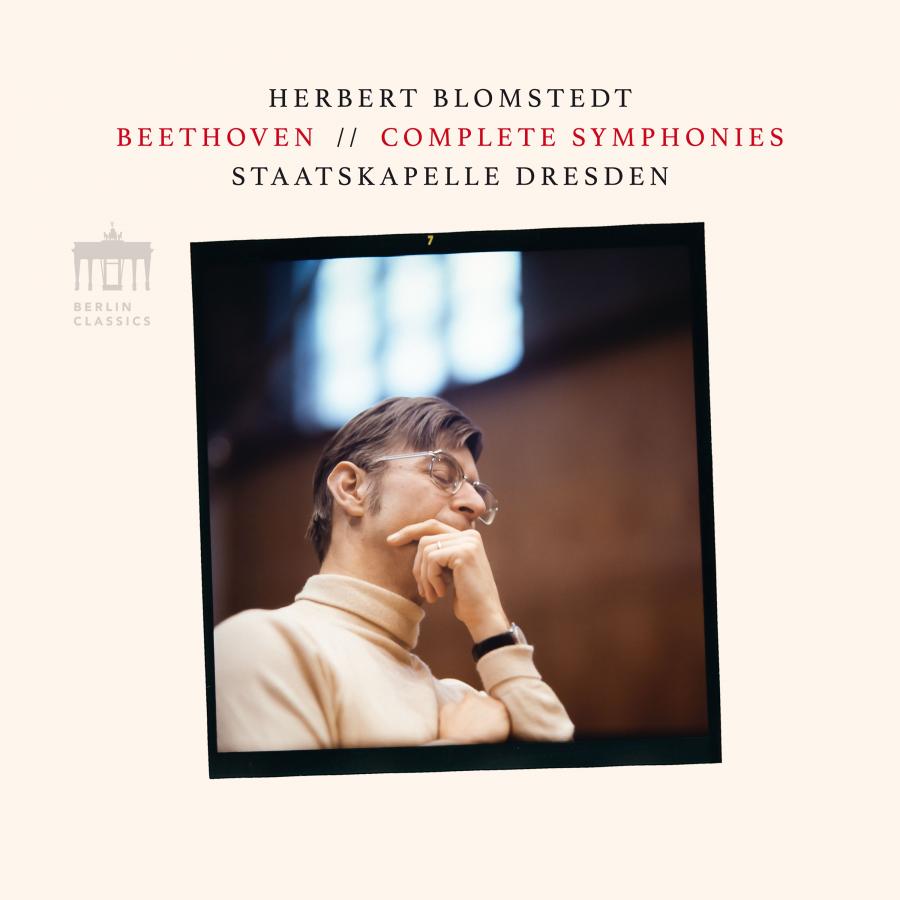
Composer

Further information
Genre
Klassik - Instrumental
Sinfonische Musik / Orchestermusik
Publication date
17.04.2020
The history of the musical partnership between Herbert Blomstedt and the Staatskapelle Dresden began over 50 years ago: in 1969 the conductor, who was born in the USA and grew up in Sweden, stood for the first time at the podium of the over 450-year-old Sächsische Staatskapelle Dresden. To date, over 500 concerts have been added. It shows Blomstedt's great devotion and enthusiasm that he went behind the Iron Curtain in the middle of the Cold War and became chief conductor of the orchestra from 1975-1980. In addition to a Schubert cycle, he also recorded all the Beethoven symphonies for the GDR classical label ETERNA. As much as Blomstedt set great value upon the audio transparence of the orchestral fabric, he filled each of the nine Beethoven symphonies with life. After all, as he once described the main feature of these works, it is the music that wants to appeal to the listener. Hence, we are touched and swept along, flattered and captivated by Blomstedt and the Staatskapelle, with arcs of suspense and mood reaching from sublime to jagged, from grippingly impulsive to exquisitely beautiful and longingly cantabile. On the one hand, the musicians completely refrain from heavy romantic expressiveness in the process. On the other hand, the recordings lack that detached analytical "rationality" often found in radical readings and among the advocates of historical performance practice. For all his accuracy, Blomstedt's Beethoven always possesses human traits, ranging from sensitive to friendly. A perspective that is not at all surprising for such a conductor. Although he has been ranking among the world's first-class conductors since those Dresden years, he has preserved a warm-heartedness in his dealings with the orchestra setting him radically apart from many other colleagues behaving like despots. "To have governance over a hundred people, that was never my goal," was a phrase summing up his musical self-conception early on. The tapes on this recording, whose recording sheets in the booklet give an insight into the internal processes behind the scenes, have been remastered natively in analogue to carefully reproduce the original sound of the tapes.
Tracklist - These are the tracks you will hear on the album
Beethoven: Complete Symphonies
Staatskapelle Dresden & Herbert Blomstedt
1
I. Adagio molto - Allegro con brio
2
II. Andante cantabile con moto
3
III. Menuetto. Allegro molto e vivace
4
IV. Finale. Adagio - Allegro molto e vivace
5
I. Allegro con brio
6
II. Marcia funèbre. Adagio assai
7
III. Scherzo. Allegro vivace
8
IV. Finale. Allegro molto
9
I. Adagio molto - Allegro con brio
10
II. Larghetto
11
III. Scherzo - Allegro
12
IV. Allegro molto
13
I. Adagio - Allegro vivace
14
II. Adagio
15
III. Allegro vivace
16
IV. Allegro ma non troppo
17
I. Allegro con brio
18
II. Andante con moto
19
III. Allegro
20
IV. Allegro - Presto
21
I. Erwachen heiterer Empfindungen bei der Ankunft auf dem Lande. Allegro man non troppo
22
II. Szene am Bach. Andante molto mosso
23
III. Lustiges Zusammensein der Landleute. Allegro
24
IV. Gewitter, Sturm. Allegro
25
V. Hirtengesang. Frohe und dankbare Gefühle nach dem Sturm. Allegretto
26
I. Poco sostenuto - Vivace
27
II. Allegretto
28
III. Presto
29
IV. Allegro con brio
30
I. Allegro vivace e con brio
31
II. Allegretto scherzando
32
III. Tempo di menuetto
33
IV. Allegro vivace
34
I. Allegro ma non troppo, un poco maestoso
35
II. Molto vivace
36
III. Adagio molto e cantabile
37
IV. Presto



